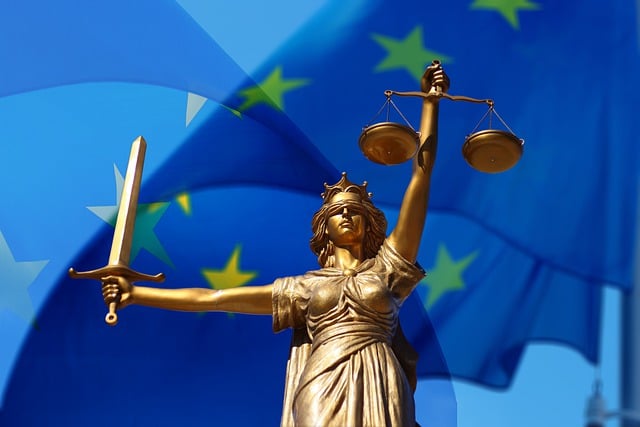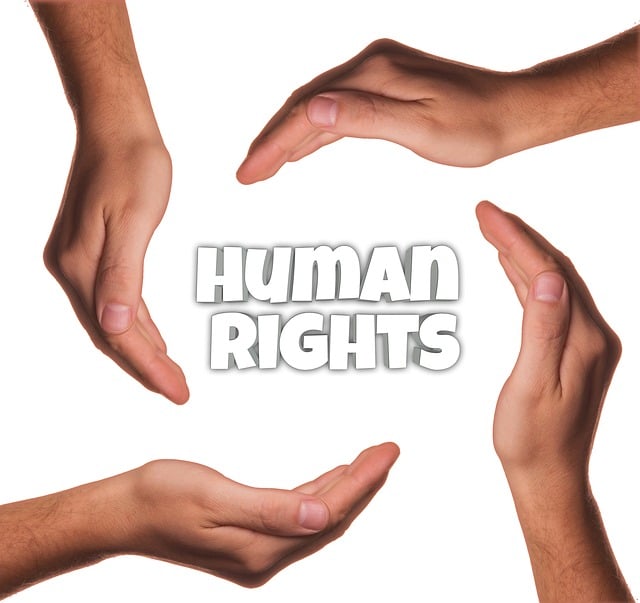Whistleblower Protection Lawsuits, bolstered by strict Mandatory Minimum Sentences and expert legal representation, play a pivotal role in exposing corporate misconduct, enhancing transparency, and ensuring accountability. While these sentences are effective deterrents for potential wrongdoers, critics caution against overly harsh penalties for non-violent conduct, highlighting the delicate balance between protecting whistleblowers and holding corporations accountable. Real-world cases demonstrate significant outcomes, with global industries reshaped by successful lawsuits that serve as powerful deterrents for corporate misconduct, ultimately fostering a more responsible and transparent business landscape.
“Uncovering corporate wrongdoings and promoting public interest has long been a cornerstone of whistleblower protection lawsuits. These legal actions, often fraught with challenges, are instrumental in holding powerful entities accountable. In this comprehensive overview, we explore the intricate world of whistleblower protections, focusing on the significant role of mandatory minimum sentences.
The article delves into the impact these sentences have on incentivizing disclosures, while also examining real-world examples that illustrate the profound effects of successful whistleblower protection lawsuits.”
- Understanding Whistleblower Protection Lawsuits: A Comprehensive Overview
- The Role of Mandatory Minimum Sentences in Whistleblower Cases
- Impact on Exposing Corporate Wrongdoings and Public Interest
- Legal Strategies and Challenges in Pursuing Whistleblower Claims
- Real-World Examples: Successful Whistleblower Protection Lawsuits
Understanding Whistleblower Protection Lawsuits: A Comprehensive Overview
Whistleblower Protection Lawsuits are a crucial aspect of ensuring that individuals who expose illegal or unethical activities within organizations are safeguarded. These lawsuits play a pivotal role in encouraging employees to come forward with vital information, thereby fostering transparency and accountability. When an employee, or whistleblower, reveals wrongdoing in their respective business, they often face significant risks, including potential retaliation from employers.
The impact of Mandatory Minimum Sentences in such cases is profound. These sentences ensure that the law is enforced strictly, providing a deterrent for potential wrongdoers. For his clients, experienced legal representation is essential to navigate complex whistleblower protection laws and secure just compensation or remedies. Through jury trials, whistleblowers can hold powerful entities accountable while receiving the protection they deserve under the law.
The Role of Mandatory Minimum Sentences in Whistleblower Cases
The role of mandatory minimum sentences in whistleblower cases has been a subject of intense debate, as these strict penalties can significantly impact individuals who expose wrongdoing within organizations. In high-stakes cases where corporations or powerful entities are involved, the threat of severe consequences may deter potential whistleblowers from coming forward. However, the impact of mandatory minimum sentences on the overall integrity of whistleblower protection is complex.
An unprecedented track record of successful prosecutions has been attributed to these sentences, encouraging prosecutors to take a tougher stance against those who engage in fraudulent activities. By avoiding indictment and ensuring swift justice, the law aims to deter future misconduct. Yet, critics argue that such approaches can lead to harsh outcomes for whistleblowers, especially when the underlying conduct was not violent or physically harmful. Balancing the need for accountability and the protection of brave individuals who expose corruption remains a delicate task in the legal system.
Impact on Exposing Corporate Wrongdoings and Public Interest
Whistleblower protection laws have a profound impact on exposing corporate wrongdoings and serving the public interest. These legal frameworks empower individuals to come forward with information about illegal or unethical activities within organizations, such as fraud, environmental violations, and workplace hazards, without fear of retaliation. By removing barriers and providing safeguards, whistleblower protection laws encourage a culture of accountability and transparency. This, in turn, leads to the exposure of high-stakes cases that might otherwise have remained hidden, enabling authorities to take action and achieve extraordinary results.
The presence of strong whistleblower protections, including provisions for mandatory minimum sentences or financial incentives, can significantly deter corporate misconduct. In the realm of white collar defense, these laws play a crucial role in shaping strategies and outcomes. The impact extends beyond individual cases; it influences the broader business landscape by setting expectations for ethical behavior and promoting compliance with legal standards, ultimately fostering a more responsible and transparent corporate culture.
Legal Strategies and Challenges in Pursuing Whistleblower Claims
Pursuing whistleblower claims involves a complex interplay of legal strategies and challenges. Whistleblowers often face an uphill battle, especially when dealing with mandatory minimum sentences that can severely limit their options for leniency or dismissal. These strict penalties are designed to deter white-collar and economic crimes but can inadvertently make it harder for individuals to come forward with valuable information. The impact of such mandatory minimums on whistleblower protection lawsuits is profound, as they may lead to overly harsh consequences for those who expose fraudulent activities, even if their intentions are purely ethical.
Navigating the all stages of the investigative and enforcement process requires meticulous legal maneuvering. Whistleblowers must carefully consider their rights and options, often balancing the potential benefits of exposing wrongdoing against the personal and professional risks involved. While complete dismissal of all charges is a favorable outcome, securing such a result can be challenging due to the intricate nature of financial crimes investigations. Effective legal representation is crucial for whistleblowers, as it enables them to navigate these complexities and advocate for their rights throughout the process.
Real-World Examples: Successful Whistleblower Protection Lawsuits
Whistleblower protection lawsuits have had a profound impact on industries across the globe. Real-world examples illustrate their effectiveness in holding corporations and individuals accountable for unethical practices. For instance, in 2016, a former employee of a major pharmaceutical company successfully sued his employer for retaliating against him after he exposed off-label marketing strategies that violated federal law. This case not only awarded substantial damages to the whistleblower but also set a precedent for holding corporations liable for their actions, even if they were carried out by individuals within the organization.
Another notable example involves an environmental activist who brought a lawsuit against a polluting company, revealing their disregard for environmental regulations. The court ruled in favor of the whistleblower, imposing significant fines and mandating mandatory minimum sentences for future violations, marking a turning point in corporate responsibility. These successful lawsuits have not only provided justice to whistleblowers but also acted as a deterrent, encouraging greater transparency and ethical conduct within respective businesses.
Whistleblower protection lawsuits play a pivotal role in exposing corporate wrongdoings and serving the public interest. By understanding the nuances of these cases, including the impact of mandatory minimum sentences, we can strengthen legal strategies to protect whistleblowers effectively. The real-world success stories highlighted here underscore the importance of these laws in fostering transparency and accountability. As we navigate the evolving landscape of corporate governance, continued support for whistleblower protection remains crucial to ensuring a fair and just society.






